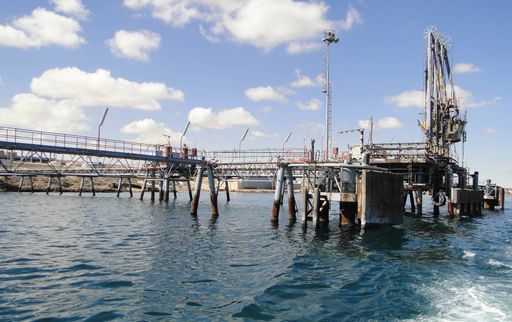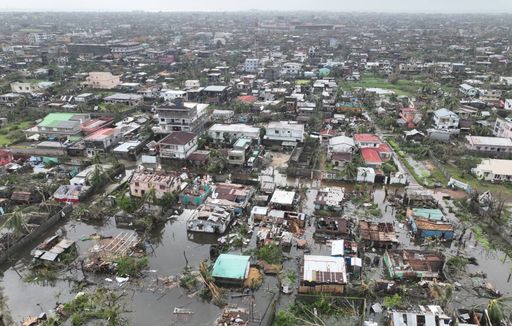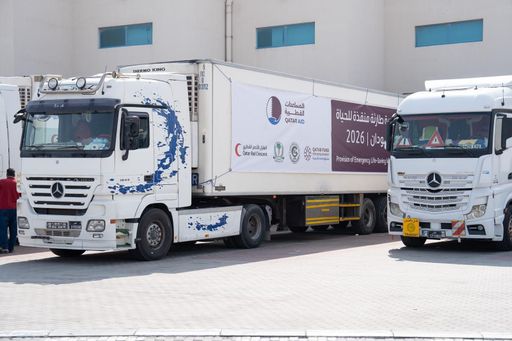Sport
The assassination of militia leader Abdel Ghani al-Kikli has triggered deadly clashes in Tripoli in what some experts view as a potential turning point in the city’s militia-driven security model.
By Berra Ince
Abdel Ghani al-Kikli, one of Tripoli’s most powerful militia commanders, was killed on May 12 during a shootout at the headquarters of the 444th Brigade, a force affiliated with the Ministry of Defense.
His death sparked a second wave of clashes the following day between the 444 Brigade and the Special Deterrence Force (Radaa), a rival militia that controls parts of eastern Tripoli, including Mitiga Airport and several key state institutions.
While no official death toll has been released, the Libyan Red Crescent reported recovering at least one body from a main road in the capital.
Who is Abdel Ghani al-Kikli?
Kikli, also known as “Gnewa,” rose to power by forming a brigade in Tripoli’s Abu Salim district, which later became the foundation of the Stability Support Apparatus (SSA), officially established in 2021 by a Presidential Council decree.
“After taking up his position, Gnewa established close contact with Prime Minister Dbeibah,” says Taha Yasin, a political and security analyst specialising in the Middle East.
“As a result, he managed to place his loyalists — directly or indirectly — in many key government positions within the Tripoli-based administration,” he tells TRT World.
But that relationship soured. In recent months, Kikli’s bid to consolidate control over key government posts led him to fall out not just with Dbeibah, but with rival militias.
His death, Yasin argues, could trigger “significant changes” in the security model built around armed groups in Tripoli.
How did it come to this?
Libya remains divided between a UN-recognised Government of National Unity (GNU) in Tripoli, led by Prime Minister Abdulhamid Dbeibah, and a rival administration in the east backed by General Khalifa Haftar and aligned with the House of Representatives in Benghazi.
The split dates back to the 2011 NATO-backed revolt that toppled and killed longtime leader Muammar Gaddafi, which saw the country plunging into institutional chaos with no unified state.
In the absence of a functioning army, police, or judiciary, local armed groups filled the vacuum, acting as semi-state structures: collecting taxes, interfering in the judiciary, controlling border crossings, and managing energy facilities.
Rather than integrating into a national framework, many militia remained loyal to local commanders, siphoning state resources while contributing little to stability or governance.
“As a result, the boundaries between the state and militias became blurred in Libya, and armed power became the primary source of political legitimacy,” Yasin says.
The killing of Abdel Ghani al-Kikli and the clashes that followed could suggest that the foundations of the militia-based security model are beginning to unravel, according to Yasin.
“Dbeibah has now gained the ability to make appointments within the government and other key institutions more freely, without pressure from armed groups, and has sent that message clearly to other power players,” he says.
‘No place’ for non-state forces
Following the latest clashes, which involved the 444th and 111th Brigades, forces aligned with the Ministry of Defense, and the Special Deterrence Force, Dbeibah declared that security had been restored. He praised state forces for demonstrating that “legitimate state institutions are capable of protecting the nation and preserving the dignity of its citizens”.
“There is no place in Libya except for state institutions, and no authority except that of the law,” he said.
His office ordered the dismantling of “irregular armed groups” and moved to assert greater control over key checkpoints and security installations.
According to Yasin, the Dbeibah administration appears to be moving away from a consensus-based governance model with militias and toward a direct intervention and purge strategy.
“While this may allow the government more freedom in decision-making, it also brings the risk of renewed conflict”, he warns.
Comments
No comments Yet




















Comment